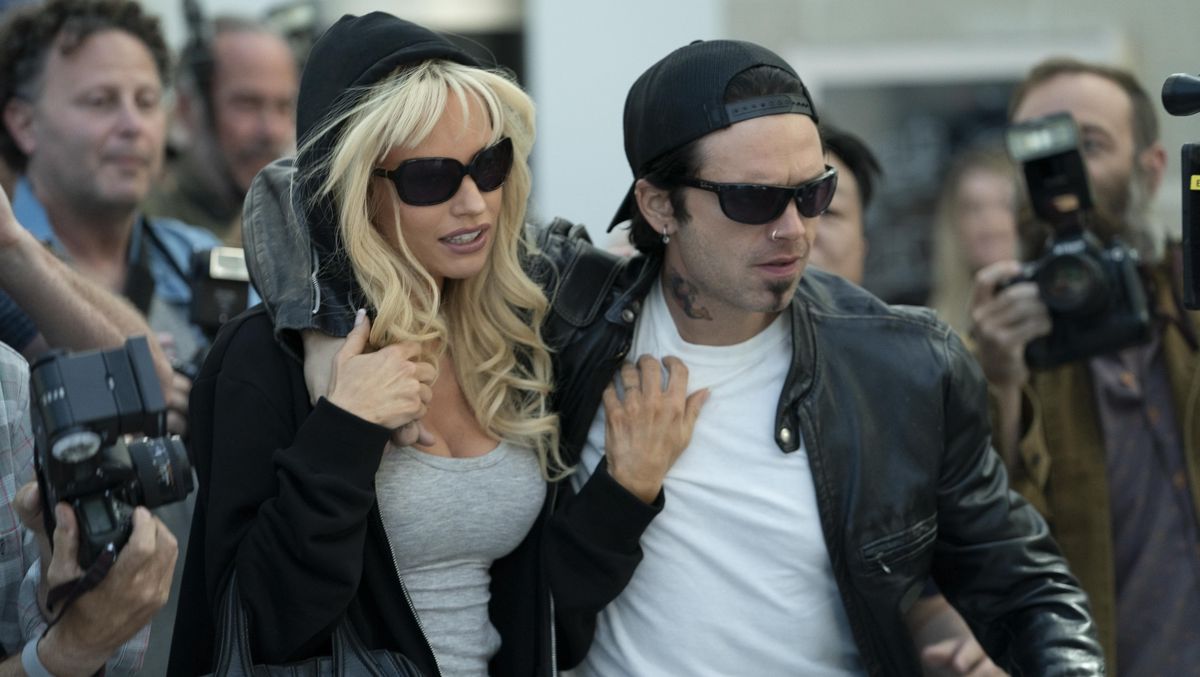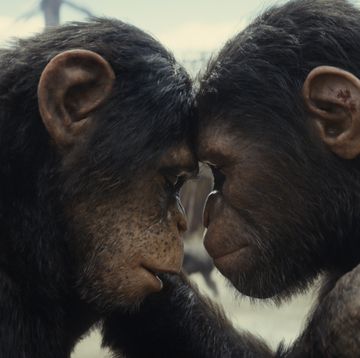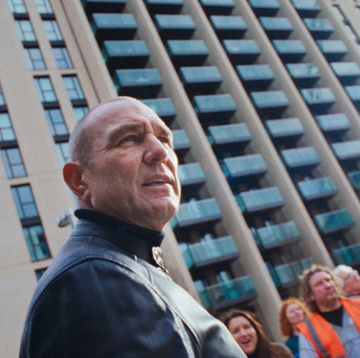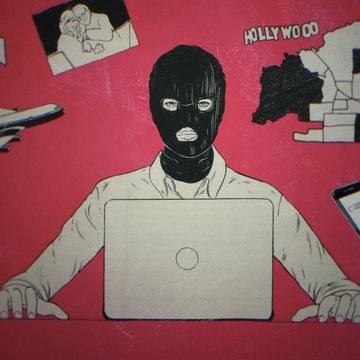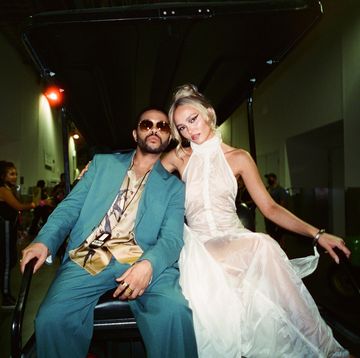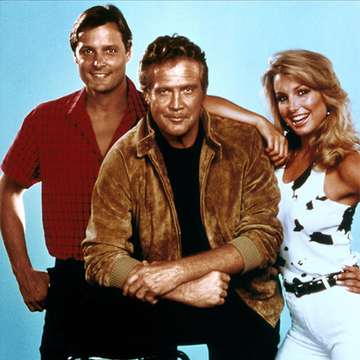This article contains Pam & Tommy spoilers
"What's it like to have that kind of exposure?" Jay Leno asks Pamela Anderson at the start of Pam & Tommy, the much-anticipated series that dropped this week on Hulu and Disney+. The scene re-imagines an interview on The Tonight Show in 1996, which was recorded before the release of her debut film Barb Wire but after a “sex tape” of Anderson and Tommy Lee was released without their consent. The tape – a collection of home videos, some explicit, mostly intimate scenes from their honeymoon – reached an audience of millions, first through VHS copies of the original sold online, then via parking lot bootlegs and free porn sites, where you can still stream it now. It was an invasion of privacy on a scale unimaginable in the mid-90s, and the toll of it caused the couple to implode. As we witness across eight episodes, the theft was especially harsh on Anderson, who has in reality spent the last two and a half decades shutting down questions about it with characteristic steely sweetness. Which begs another question: why make a biographical drama about the incident without her involvement?
Written by Robert D. Siegel (The Wrestler, The Founder), directed by Craig Gillespie (Cruella, I, Tonya, Lars and the Real Girl) and produced by long-time collaborators Evan Goldberg and Seth Rogen, Pam & Tommy details the events leading up to the tape’s release as well as the fallout. Half the plot follows carpenter Rand Gauthier (played by Rogen), who stole a safe from the couple’s house in Malibu following a dispute over pay, not knowing the tape would be amongst the valuables. Meanwhile lead duo Lily James and Sebastian Stan portray Anderson and Lee in all their guts and glory, from whirlwind beginnings that saw them exchanging vows barefoot on a beach in Cancun just 96 hours after they met, to the dissolution of their marriage in 1998. Lee has said he has “no problem” with Stan portraying him in the series. “From what he's told me, it's a really beautiful story," Lee told ET, enthusiastic about its focus on privacy and proto-viral sensationalism.
He’s not wrong there. Pam & Tommy revisits the era from a modern vantage point, which assumes an understanding of how the now-infamous sex tape laid the foundations for 21st century celebrity culture and life online. We know that a ‘trend’ of celebrity sex tapes followed in its footsteps – Paris Hilton and Rick Salomon, Kim Kardashian and Ray J, Katie Price and Dane Bowers to name a few – to much the same response. The women were punished twofold because they traded in sex appeal to begin with; the men let off as accessories to a predominantly female crime. Similarly, we can see the leak as an early example of the anonymity of the internet being used to strip down the final layer of protection between celebrities and the public – something that, in the age of Deuxmoi and #TheFappening, is alarmingly commonplace.
By way of incorporating all that, Pam & Tommy reruns the series of unfortunate events through a #MeToo lens. From the ageing glam rocker who refused to pay his handymen, to the dick swinging contest between Penthouse and Playboy that led to frames from the video being published in print, to the lawyers who encouraged the couple to sue (thus legitimising a story that may otherwise have not qualified as ‘news’), blame is laid squarely at the feet of toxic masculinity. Each episode takes care to remind the viewer that, while the hot-headed Tommy Lee may have invited karma past his doorstep, Pamela Anderson was an innocent victim. A global 90s sex symbol, she was the reason for the tape's mass appeal and the one who stood to lose the most from its distribution. That much is obvious, but it’s a bit rich to take the high ground so boldly considering Pam & Tommy – a series created entirely by men – doesn’t challenge that dynamic, it perpetuates it.
Pam & Tommy is marketed with the same tabloid salaciousness that surrounded the tape in the first place. It gets the warmth and humour of their relationship across, but there is a strange dissonance in jumping from Tommy Lee having Pixar-esque banter with his jumbo hog – CGI animated and voiced by Jason Mantzoukas – to a mortified Pamela Anderson realising that the world is watching her have sex. It foregrounds their humanity unlike the news cycle at the time, but without Anderson’s involvement cannot have the ‘reclaiming history’ moment it seems to be going for.
In a way, it’s a cynical next step for the mini-series format – having run out of serial killers and cults to portray, we've moved on to scandals just public enough to be fair game, but not quite personal enough to require permission. As a young LA Times reporter states in one episode, this story has everything – sex, the internet, celebrity. It’s a story so good it insists on being told and retold, enduring not because of how much it foreshadowed about pop culture today, but because we have learned nothing since. Even Ryan Murphy’s series about Bill Clinton’s impeachment trial was shelved until Monica Lewinsky signed on as a producer.
Anderson has yet to address the series publicly or respond to the cast’s efforts to reach out. However, those close to her have suggested that it picks at old wounds. Speaking to ET, one source said the release of the show “has been very painful for Pamela Anderson and for anyone that loves her.”
To James's credit, she portrays Anderson with clear admiration, nailing her charm and resolve. Stan, too, finds a kindness and loyalty in Tommy Lee that many will not have associated with the Mötley Crüe drummer before. One of Pam & Tommy’s greatest strengths is how it leans into the infatuation of the couple’s early years, as well as the qualities – Anderson’s small town naivety and open heart, Tommy’s good time philosophy and magnetism – that endeared them both to the public and to each other. "My sole intention was to take care of the story and to play Pamela authentically,” James said in a recent interview. “Women are held to much higher standards and attacked in ways that feel so vicious. Pamela had such wit and grace in the way that she held herself.”
Those characteristics are captured well in Pam & Tommy, which is overall more tender than it is raunchy. However, it’s a bitter pill to swallow that Lily James – a wholesome “English rose” who was praised for taking on the role before the show even aired – will likely earn an Emmy nomination for “transforming” herself into the very person that Pamela Anderson was booted out of Hollywood for being. Worse yet is the version of events that gives Gauthier a fictionalised redemption arc, while actual Pamela Anderson endures yet another media run of a traumatic event that refuses to rest. In the end, there is a distinct sensation of the snake eating its own tail. Even at its most accomplished, Pam & Tommy replicates the original sin by turning the tape into another form of entertainment.
There is a persistent belief that celebrities aren't entitled to privacy, that the intimate details of their lives should be public domain and their identities up for grabs depending on who we need them to be and when. This belief is much stronger for women, and like the pull of the moon for women who capitalise on their sexuality. It was only April last year that Paris Hilton revisited her own leaked sex tape for the first time since 2004, telling Vanity Fair that she has PTSD and that the incident will "hurt me for the rest of my life".
"It's not funny,” Anderson replies to Leno in the real interview from 1996, clearly struggling to convey the gravity of her situation just as Hilton would all those years later. “This is devastating to us."
Pam & Tommy is a well cast, well made series that portrays one of America's most iconic celebrity couples with a watchable mix of sauce and sentiment. It shows how the theft destroyed their personal and professional lives, benefitting from the perspective we now have on the rife abuse of women in Hollywood. In the end, though, it seems too busy congratulating itself to notice that it stopped short of doing the one thing that would have honoured Pamela Anderson’s legacy properly, which would have been to leave it alone.


